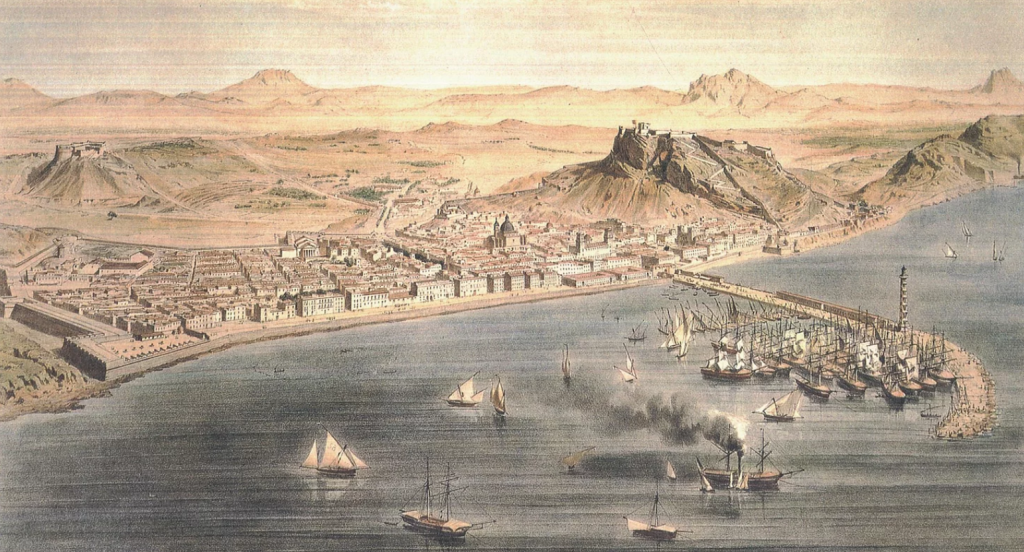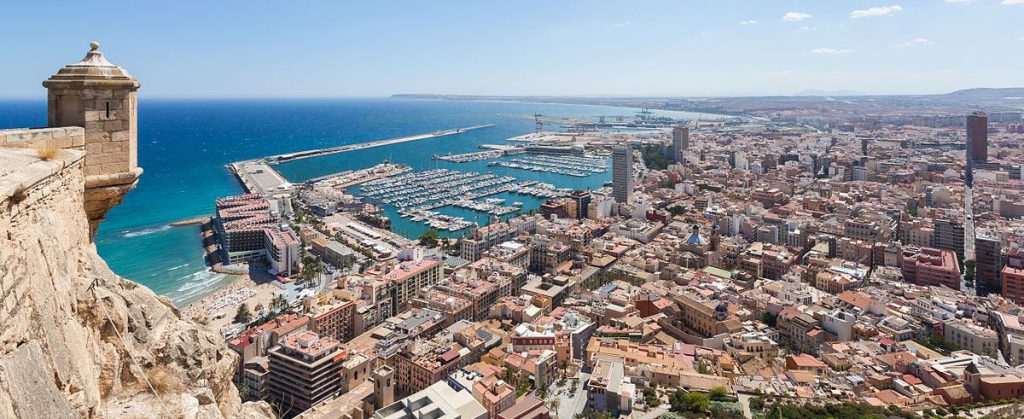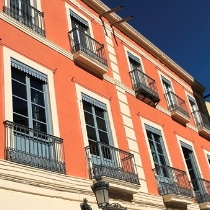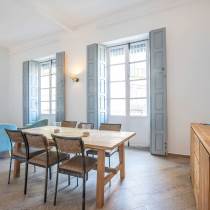History
History of Alicante in a nutshell

In the 7000 years that the city of Alicante has been inhabited, it appears to be a popular city and region. In the first 2000 years, Hunter-gatherers from Central Europe settle on and around Mount Benacantil. 1000 years later, the Greeks also settle there and conduct a lively trade. They call it ‘Akra Leuka’, which means Light Point. Around 400 BC the Carthaginians (from present-day Tunisia) conquered the region, but 200 years later it was the turn of the Romans and they called the settlement ‘Lucentum’ (City of Light). 5,500 Years summed up in four sentences..
Later, when the Roman Empire crumbles, the Vandals and Alans fill the vacuum, but they in turn are defeated in 426 by Visigoths, from present-day Western Russia. During mutual feuds, one of the warring factions (around 711 AD) enlists the help of the Moors to intervene. The North Africans seize this opportunity to occupy all of Spain and call the city ‘Al-Akant’ (White or Light City).
In the 11th century, the Spaniards put things in order in a part of the country, but it was not until 1246 that the Castilian king Alfonso X takes the city of Alicante, followed by the capture of the castle on the Benacantil in 1248. This takes place on the holiday of Santa Barbara (December 4), which immediately becomes the namesake of the castle. A little later in 1298 Alicante is placed under authority of Valencia which has close ties with Catalonia.
During the relative calm that follows, Alicante’s economy thrives through the trade in rice, wine, olive oil, oranges and wool. Meanwhile, the reconquest of the rest of the country continues and in 1496 the Catholic Kings complete the ‘Reconquista‘ (recapture) on the Moors.
At the beginning of the 17th century, looting is the order of the day, as thousands of Moors left behind prove more loyal to the Berber pirates than to the city. The remaining Moors are chased away and with that the city loses a large part of its workers, so that the prosperity falls far back.
A century later (early 18th century) the region – after the War of the Spanish Succession – loses its autonomy as punishment for the lack of loyalty to the king. During that war (1701-1714), the English took advantage of the chaos by capturing the castle only to be driven out again three years later. The economy mainly grows at the end of the 19th century, partly helped by the Spanish neutrality in the 1st World War.
During the Rif War (1920-1926) many men from Alicante were killed and in 1931 the Second Spanish Republic was proclaimed.
However, General Franco takes advantage of popular discontent and seizes power during the Spanish Civil War (1936-1939), with Alicante holding out as the last Republican stronghold. Repeated Italian (Aviazione Legionaria, Mussolini) bombings follow, with help from the German Luftwaffe. The covered market (Mercado Central, see separate item) in particular was hit hard, after which morale was broken. Until Franco’s death in 1975, Alicante has a hard time. After that, tourism picks up, without becoming dominant in the city.

Lees verder bij Highlights, Horeca, Tips & Tours of stuur een e-mail naar info@casaluzapartamento.com

 NL
NL EN
EN ES
ES




